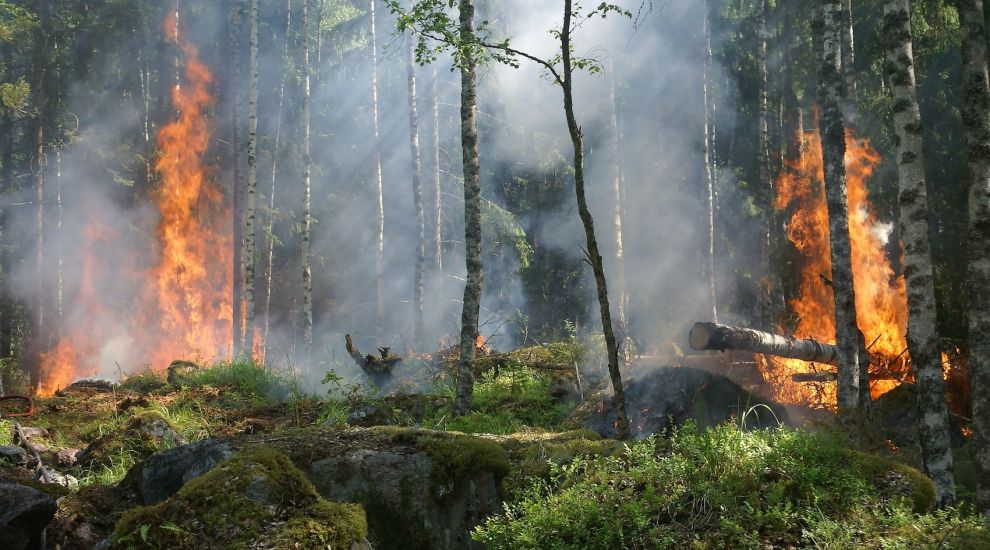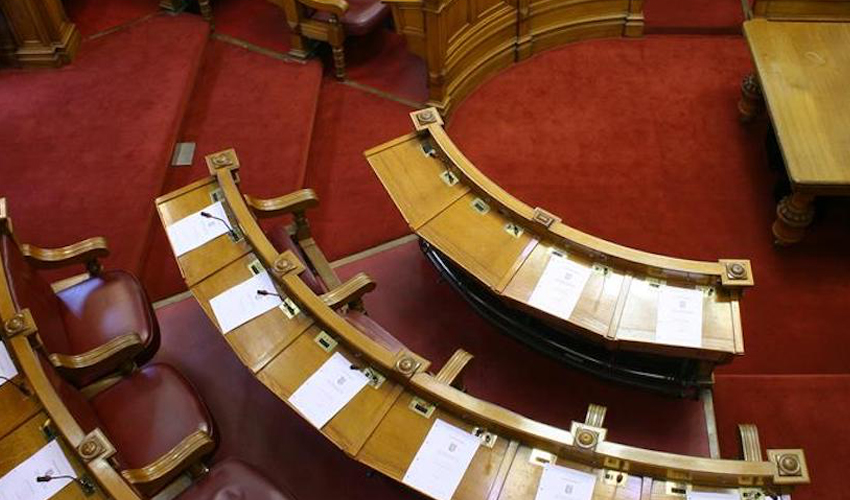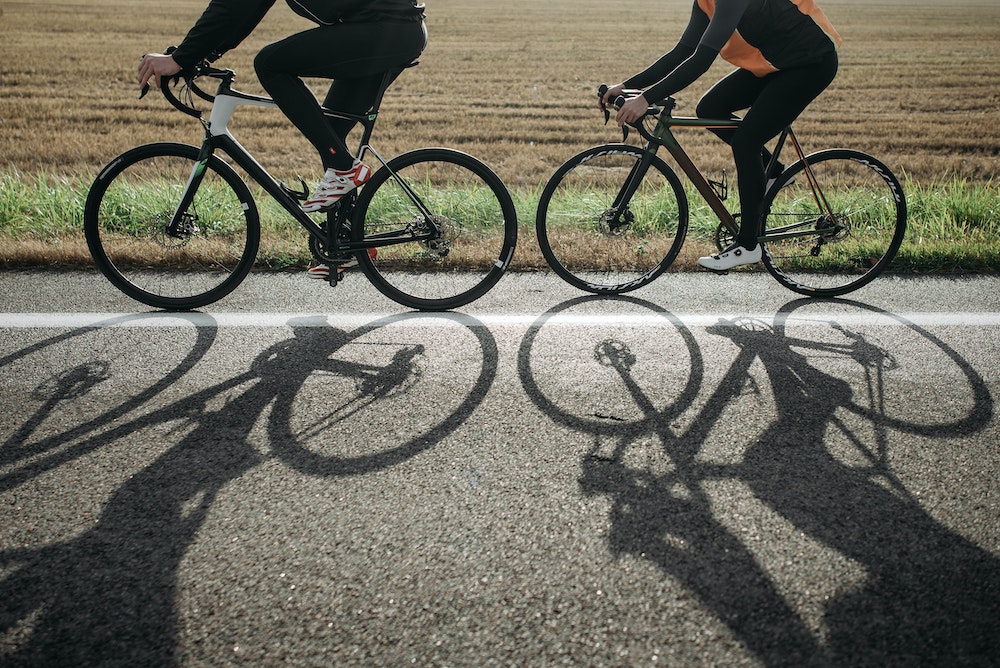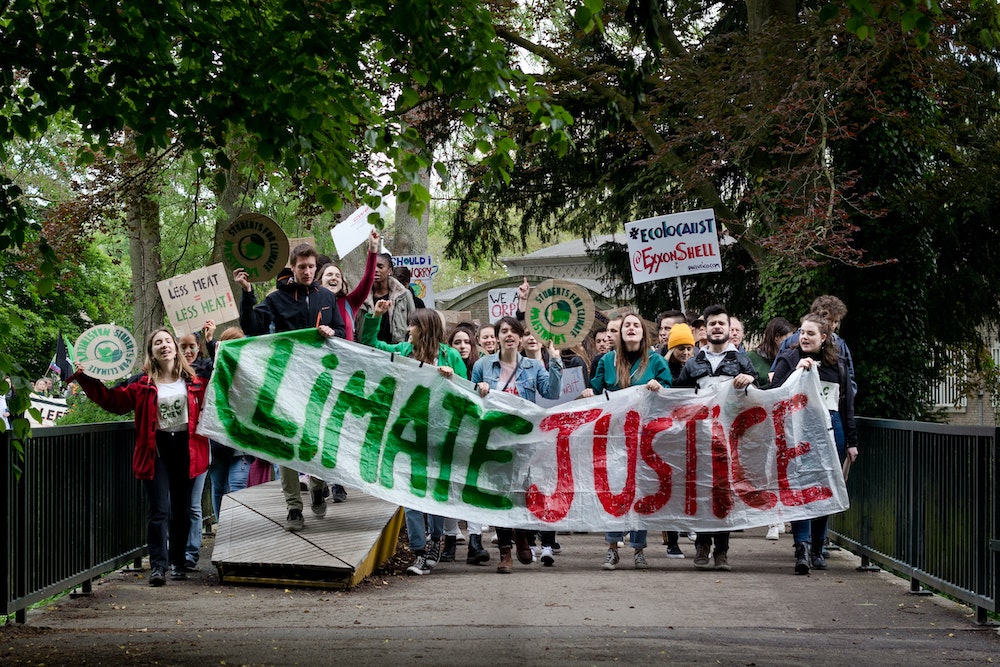


Climate change is undeniably a controversial topic which has attracted a huge amount of debate in recent years. It's hard to know what to think or do about the issue with so many contrasting messages coming from various different directions.
Here, Express showcases two of those vastly different opinions from islanders Michael Van Neste and John Pinel...
John Pinel suggests that we need to invest in the future of Jersey by adapting to climate change, while Michael Van Neste argues that climate change is a campaign designed to make us feel frightened and guilty.
In May 2019, the States of Jersey voted to declare a 'Climate Emergency'. In this, the States were not voting to make law, or on a specific policy or procedure. Whether they realised it or not, they were voting to register their opinion on a scientific issue. They seemed to imagine that by voting, they were turning opinion into truth, a truth we are compelled to accept. Their truth is of Global, not local, concern. The Climate, you see, is not confined to Jersey. Nevertheless, because the Jersey parliament has voted on the issue, the world had better take notice. Only one Member opposed the vote. The others, presumably climate experts every one, voted on a scientific and global issue of complexity and uncertainty and went home feeling good.

Pictured: "In May 2019, the States of Jersey voted to declare a 'Climate Emergency'."
There was more to follow. Jersey is to lead the world in "carbon reduction". No matter that few people more than 20 kilometers from St Malo are even aware of this Island, we shall lead the world. Our politicians said so. We have decided, for the world, that there is an emergency but worry not; we shall lead the world in putting matters to right.
This brings us to the point of this article. Leadership is a fine quality, but in leaping over the cliff of carbon neutrality, one can confidently predict that few, if any, lemmings will follow. Furthermore, our hopeless sacrifice will have no effect on the climate.
Putting aside the extraordinary arrogance of these events, it is accepted that Jersey's politicians have responded with good intent to the claims of activists and extremists in the climate debate. They want to save us from ourselves. They want to save the planet. They want to tackle climate change. They feel a responsibility to make us change our behaviour, because we are not capable or responsible, and the planet needs saving, and they are going to act for us. In short, they know what is good for us and they are going to make sure, like it or not, that we take the medicine.

Pictured: "To save the planet, there is nothing to stop anyone from cycling instead of driving, or from giving up meat, or from flying, if that is their thing."
We pride ourselves that we are a free-thinking, tolerant society, with free speech and freedom to follow, or not to follow, any religion. So, is it right that States Members should take it upon themselves to compel everyone to become practicing members of the new and intolerant religion of Climate Hysteria? To save the planet, there is nothing to stop anyone from cycling instead of driving, or from giving up meat, or from flying, if that is their thing. States Members can advise, plead or harangue if they wish us to lead the world. But, should we be compelled to comply, at enormous cost, regardless of our views on the matter? Surely not.
We are told that we should not be concerned that other countries may not follow this lead. We should "de-carbonise" regardless of what others do and as soon as possible. It is claimed that this will be of benefit to Jersey people because it will help make a better world for our descendants. Regrettably, this is blatantly false and bears no examination.
The cost and inconvenience of every policy must be weighed against the intended benefits. The discrepancy in this case is enormous. Jersey politicians have a duty to make policies for the benefit of Jersey people. Policies adopted for the benefit of the world, at the expense of Jersey people, are inherently wrong, undemocratic and smug. In this case they are also pointless, damaging and ridiculous. .
The whole of the UK produces less than 2% of total global CO2 emissions. If the UK itself, tomorrow, became totally "carbon neutral" the effect would be so small as to be irrelevant. It would make no measurable difference to the climate. There is no case, therefore, for Jersey, this tiny Island, to seek to lead the world, at great cost. There is every case for opposing any such foolhardy venture.

Pictured: "Activists have managed to frighten ordinary people, non-scientists, into imagining that every emission of CO2 is leading to catastrophe..."
Activists have managed to frighten ordinary people, non-scientists, into imagining that every emission of CO2 is leading to catastrophe and that, therefore, every reduction in emissions must be of benefit. "Every little helps". This is not the case and does not "follow the science". Accepting that CO2 is a greenhouse gas (which it undeniably is; I am not a "Climate Denier") levels of the gas have reached a point at which adding to them makes little difference. The temperature response to increasing CO2 concentration is logarithmic. This has been likened to painting over a window. A second coating, equal to the first, has almost no further effect, A third coating has no effect at all. Since Global CO2 emissions will keep on rising for decades more, Jersey cannot "tackle climate change" all by itself, cannot possibly lead the world in a different direction, and it would be senseless and harmful to try to do so.
So, what about the science? There is a lot of it. The last IPCC Report contained 4,000 pages of science, largely ignored, and a few hundred pages of political comment that made headlines, put out weeks in advance of the body of the Report. In those 4,000 pages you will search in vain for predictions of catastrophe or emergency. You will find that extreme weather events are fewer, not more frequent. Wild fires are fewer than they used to be (when they were called bush fires). Hurricanes are less frequent. Droughts and floods follow previous trends.

Pictured: "Nobody knows why, for example, the 1930s were the hottest decade of the 20th Century..."
The climate does change, very slowly, in ways that are not well understood. Nobody knows why, for example, the 1930s were the hottest decade of the 20th Century, followed by over 30 years of cooling when, at the same time, CO2 levels were increasing. You probably did not know that. Instead, you were told that temperatures have been rising, steadily and alarmingly, since the Industrial Revolution, in close correlation with rising CO2 levels. You were mis-informed. This is why a 1960 base is often used by those attempting to deny the science. A Norwegian schoolgirl informed you that "the world is on fire and people are dying" and you took notice. After all, it was on television. It was a lie. The world is not on fire and people die more from cold than from heat. The mild warming that has occurred has saved lives.
You have been frightened and made to suffer guilt by a campaign designed to achieve exactly that. Let's put a stop to it.
Climate change is no one's fault and we shouldn't feel guilt or hopelessness when faced with the challenges a changing climate will bring, but we need to take steps to adapt to the future. Reports suggest that Jersey's carbon footprint is small, but those reports don't tell the whole story. Almost everything that we consume in Jersey, from our food to our cars, is manufactured somewhere else. We are not considered responsible for the energy used to produce and transport a car manufactured in Japan and shipped to Jersey via the UK. We don't count the carbon footprint of our furniture, our electronic devices, the cement in the walls of our homes or any of the other materials that we use on a daily basis.

Pictured: "We are not considered responsible for the energy used to produce and transport a car manufactured in Japan and shipped to Jersey via the UK. "
Neither do we account for the much larger impacts of those companies who provide employment for people in Jersey. Our finance industry supports investment in fossil fuel production world-wide. We are home to a large number of mining companies. Our construction sector depends upon huge volumes of imported steel and cement. None of the fossil fuel emissions these companies cause are accounted for in Jersey's current carbon budget. If they were, Jersey's carbon footprint would be far higher.
However, we are part of a network of countries who do take responsibility for global issues. Various agreements on matters of international concern have been extended to Jersey including efforts to reduce money laundering; To protect wildlife and their habitats; To protect our built heritage; To deal responsibly with the pollution we make and how we treat and export it. In 2022 the Paris Climate Agreement was extended to Jersey which asks countries to contribute to climate goals to keep global warming below 1.5oC.
We expect to be concerned about money laundering and conserving wildlife. We task our elected representatives to make decisions in order to maintain our international reputation and a vibrant economy and environment, to this end, they have recognised the climate emergency and have opted to become carbon neutral by 2050. We don't always agree with government decisions, but in the case of the Paris Climate Agreement the money they wish to invest in adaptation is likely to go towards projects which include; Improved infrastructure; Providing cheaper heating for people's homes; Developing a robust transport system; Building better sea defences against rising sea levels; Investing in energy and food security and conserving wildlife. A good outcome, though better if it were achieved by 2030.
Having a diverse and resilient ecosystem, with insects and animals pollinating our food crops and creating fertility in our soils supports human existence, and is important for its intrinsic value. The impact of our economy is felt throughout the natural world. The weight of humans and their livestock make up 96% of all mammals on earth, everything else, from whales to elephants to mice make up only 4%. Extinction rates of wildlife are currently estimated to be higher than at any time in the past several million years. Jersey is not immune to these changes. Our bird populations are failing and their food, insect populations are also declining. There are less fish in our seas.

Pictured: "The weight of humans and their livestock make up 96% of all mammals on earth, everything else, from whales to elephants to mice make up only 4%."
Report after report by climate scientists demonstrate that climate change is a threat to our balanced ecosystem and to complex industrial civilisation. We can't know the details of what the weather will be like on one Tuesday in April 20 years from now, but we do know what the general trend in temperature will be. Whatever we do today to reduce our emissions, the world will still see at least 1 metre sea level rise by 2100. We will see increasing severity of storms and wild fires. Deserts will continue to expand and coral reefs may become extinct. Millions of people could be displaced as refugees. Investment in climate mitigation will help to reduce these impacts.
In 2100, the children in our primary schools today will be living in the world that we hand over to them. Every tenth of a degree of warming that we can save now will be life changing for them.
We could take the path that says "we are too small to make a difference, we shouldn't even try". That solves nothing, but if every country takes steps to decarbonise their economies, then globally we may be able to reduce the worst impacts of climate breakdown.
Jersey's carbon emissions are paltry compared to China, but they are a country of around 1.5 billion people. Since 2000 China's economic growth has reduced the number of its population living in extreme poverty from 50% to effectively zero. They produce many of the goods which we use. All this takes a lot of energy, but they also happen to lead the world in solar energy generation.

Pictured: China "happen to lead the world in solar energy generation."
Whilst we all need to adapt our lives to changing weather patterns, more importantly we need to make corporations responsible for the damage that they cause to our climate and to the natural world. We need to support any government prepared to make commitments to climate adaptation and we should push them to do more, quicker.
Jersey is not seeking carbon neutrality on our own. We are also part of a network of small island jurisdictions of the British Crown Dependencies and Overseas Territories. We are all facing the same problems and together we can be a movement of influence in the world. No one is asking us to give up our cars or become vegan, but we do need to be investing in the future of Jersey. We need to adapt to a changing climate and become more resilient to its impacts. That will require investment in the same way that we invest in a new hospital or port facilities. We would be considered irresponsible if we didn't, even if we may not be around to see the results.